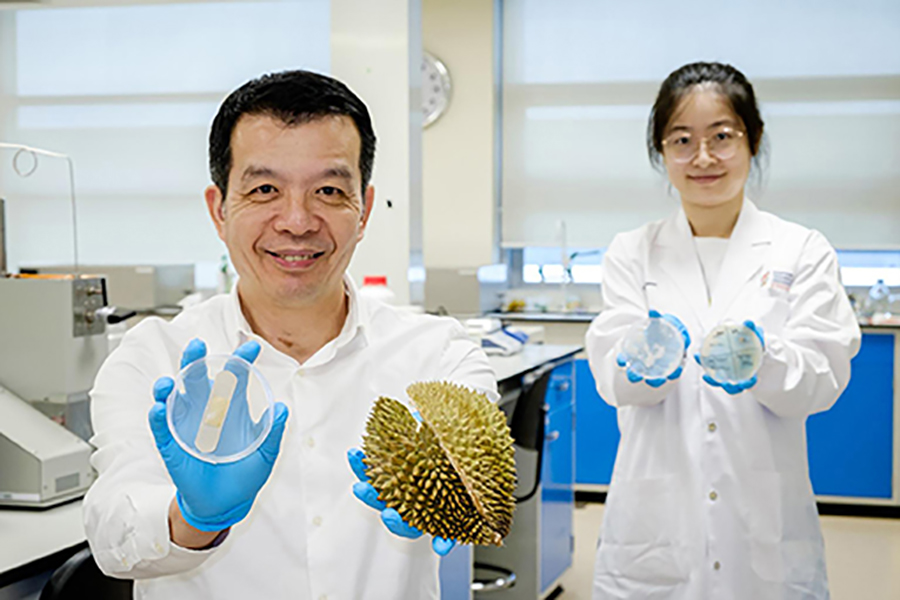At Nanyang Technological University (NTU) in Singapore, scientists are tackling food waste by turning discarded durian husks into antibacterial gel bandages.
The process extracts cellulose powder from the fruit’s husks after they are sliced and freeze-dried, then mixes it with glycerol. This mixture becomes soft hydrogel, which is then cut into bandage strips. “In Singapore, we consume about 12 million durians a year. So besides the flesh, we can’t do much about the husk and the seeds, and this causes environmental pollution,” says Professor William Chen, director of the food science and technology program at NTU. The fruit’s husks, which make up more than half of the composition of durians, are usually discarded and incinerated, contributing to environmental waste.
Chen added that the technology can also turn other food waste into hydrogel, such as soybeans and spent grains, helping limit the country’s food waste. Compared to conventional bandages, the organo-hydrogel bandages also keep wound areas cooler and moist, which can help accelerate healing. The researchers say using waste materials and yeast for the antimicrobial bandages is more cost-effective than producing conventional bandages, whose antimicrobial properties come from more expensive metallic compounds like silver or copper ions.




































